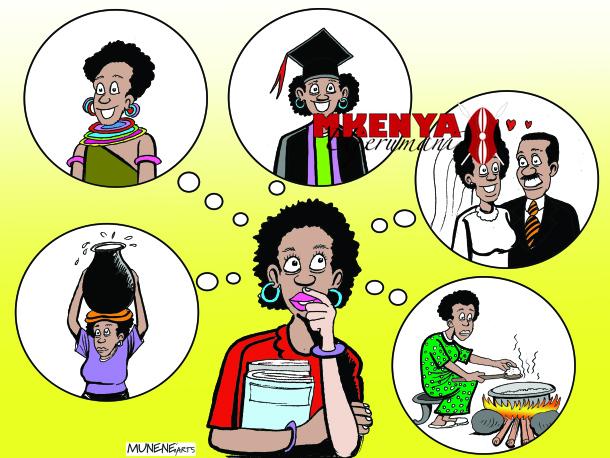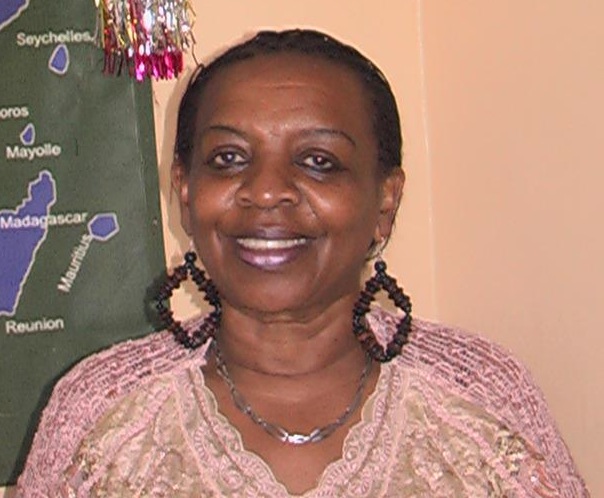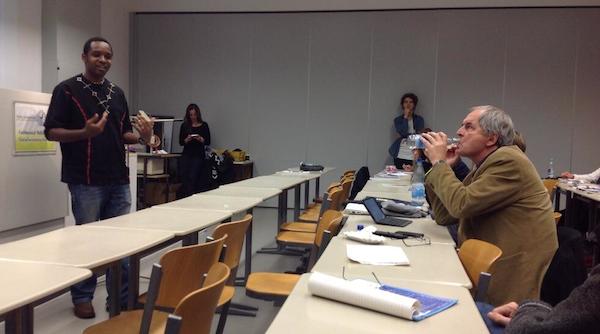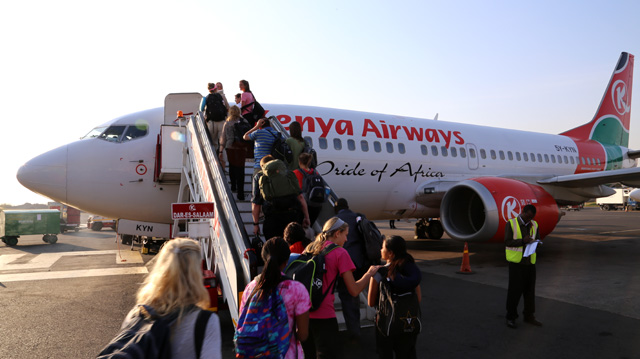“Culture does not permit…” They say.
“A woman does not…” They explain.
“As a female…” They qualify.
I have been made to feel that as an African, in particular a Kenyan woman, I cannot act in certain ways and do or say certain things.
Why you may wonder? Well because simply put, I am an African woman and my gender specification seemingly does not permit certain things. An African woman is who I am. Thus, I must think of nothing else but how to fit into the stereotype and of course subject myself to societal expectations. Of what use am I really, outside the kitchen or if we’re being liberal, outside my husband’s house? If I dare to push the envelope… How could I even dare? I am too busy learning how to cook so that I can make myself “matrimony ready.”
Lets talk about this education of mine. It is all I have been committed to in the last 20 years, that is all my life less a year and a half. But what does it matter? I have no time for a career, I have a husband to attend to, children to bear and raise and a home to keep. I must raise my boys to be future leaders and prepare my girls to bear and groom children, and cater to those future leaders. My girls will quickly know that their worth is in being a man’s wife. After all, a woman’s place is behind her husband not beside him. Her impressive educational background is to boost her bride-price, her husband’s ego and for the benefit of her children’s upbringing only.
Of course a strong African female exists, but the phrase “strong African female” appears to be a qualified title, especially for that woman who toils through adversity to provide for her family. The woman who breathes, sleeps and eats her family. Not the woman who relies on her husband to take care of the home or shares the duty with him, so that she may fulfil her burning desire to improve the world; or the woman who delays family for career; or worse still the woman who chooses career over family. “God forbid bad thing.”
I have endured snide remarks, read and heard the most ridiculous comments on women who do not fit the mould of an “African woman” and it is heart breaking. Africa, please give us ‘atypical’ African women a chance too.
I may not be a quintessential African woman, but I too am African. I am obsessed with achieving, growing in a multitude of capacities, independence and development in Kenya. It is my wish to get married one day, have children another and work towards improving my country for the rest. I have to be financially self-sufficient to get married and I am too strong-willed to be dominated by a man.
Yet, I too am African.
I will cook and clean for the man I marry, if I marry; respect his mother and his entire family members. I will not challenge his authority as my man, my husband even if I earn more than him. And if I do, I hope he can be proud of me, rather than detest me or be disgruntled. He will lead me as my husband, but we will have pre-discussed our direction as a team. I will treat him as I have been taught a man should be treated, as the head. All I ask in return is an equal place in our home, complete with respect and regard. Furthermore, I want to be seen as a true African woman, unhindered by gender and supported by culture, when I combine my role as a mother and wife with my passion for change and development.
And if I choose not to get married, is it too much to ask for my decision to be respected? After all, it is my decision. I will be the one in the marriage, not you. If I remain a spinster, but adopt a beautiful girl, maybe twins, who deserve the chance to live a better life and maybe become remarkable individuals, I hope I can be their role model, and show them thus: when culture permits, a woman performs, and even when it doesn’t she still performs. She is too strong to be deterred or distracted. As an African woman, she is too determined to be held back by “culture” or to fail at any of her responsibilities.
I refuse to tame my desires or curb my ambitions to fit traditional gender roles or expectations.
Yet, I too am African.
The original by Omotoniola Adeeyo (Toni) a Nigerian final year student at the University of Exeter studying Law, who had written for the African Youth Journals and changed the words Nigeria for Kenya.






